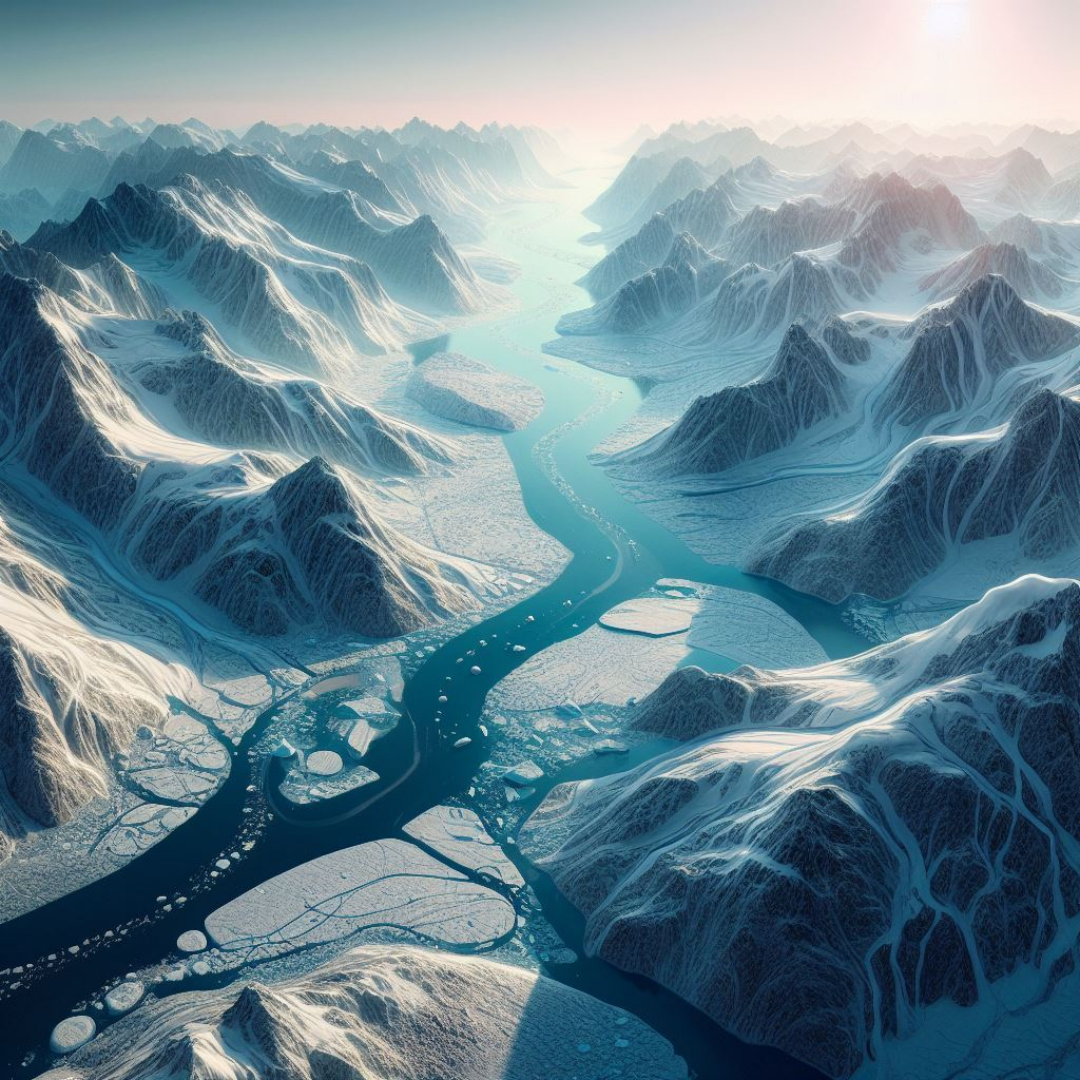As global temperatures surge past critical benchmarks, a recent study offers a glimmer of hope for Greenland’s vast ice sheet.

As global temperatures surge past critical benchmarks, a recent study offers a glimmer of hope for Greenland’s vast ice sheet. The research, based on climate modeling, proposes that even if temperatures exceed targets set by international agreements, the ice sheet’s complete meltdown could potentially be averted.
However, this salvation would hinge on substantial future reductions in greenhouse gas levels. It’s important to note that while this strategy could prevent complete collapse, some degree of melting leading to significant sea-level rise may still occur.
The study, led by Nils Bochow, a climate scientist at UiT The Arctic University of Norway, suggests that Greenland’s melting could accelerate dramatically if global temperatures surpass a threshold not much higher than 2.3 °C above pre-industrial levels.
With 2023 expected to witness temperatures 1.5 °C above this baseline, it indicates how closely we are approaching this critical threshold. The Paris climate accord of 2015 aims to cap global warming at 2 °C, with an ideal target of 1.5 °C.
Even if temperatures surge by over 6 °C from pre-industrial levels, the study demonstrates that much of the ice loss could be reversed if temperatures are subsequently brought back down to 1.5 °C within a few centuries.
Bochow emphasizes that crossing these thresholds does not necessarily spell doom for the Greenland ice sheet. However, he and other experts stress that taking proactive measures against climate change now is far more cost-effective and manageable than attempting to reverse global temperature spikes in the future. The longer we delay, the more challenging it becomes.
Greenland’s ice sheet, which holds enough ice to raise global sea levels by 7 meters, currently sheds about 270 billion tonnes of ice annually, contributing significantly to the current global sea-level rise of over 4 millimeters each year.
While the study provides a promising perspective, it comes with caveats. It does not factor in shorter-term planetary changes or accelerated warming in the Arctic region, which is occurring at three times the rate of the rest of the planet. Additionally, it assumes that society will find ways to dramatically cut greenhouse gas emissions, potentially through technologies like carbon capture.
Bochow emphasizes that this study doesn’t imply the Greenland ice sheet is out of danger. “There’s a chance to prevent some serious consequences even if there’s no political will now,” he says. “But we should act today rather than later.”